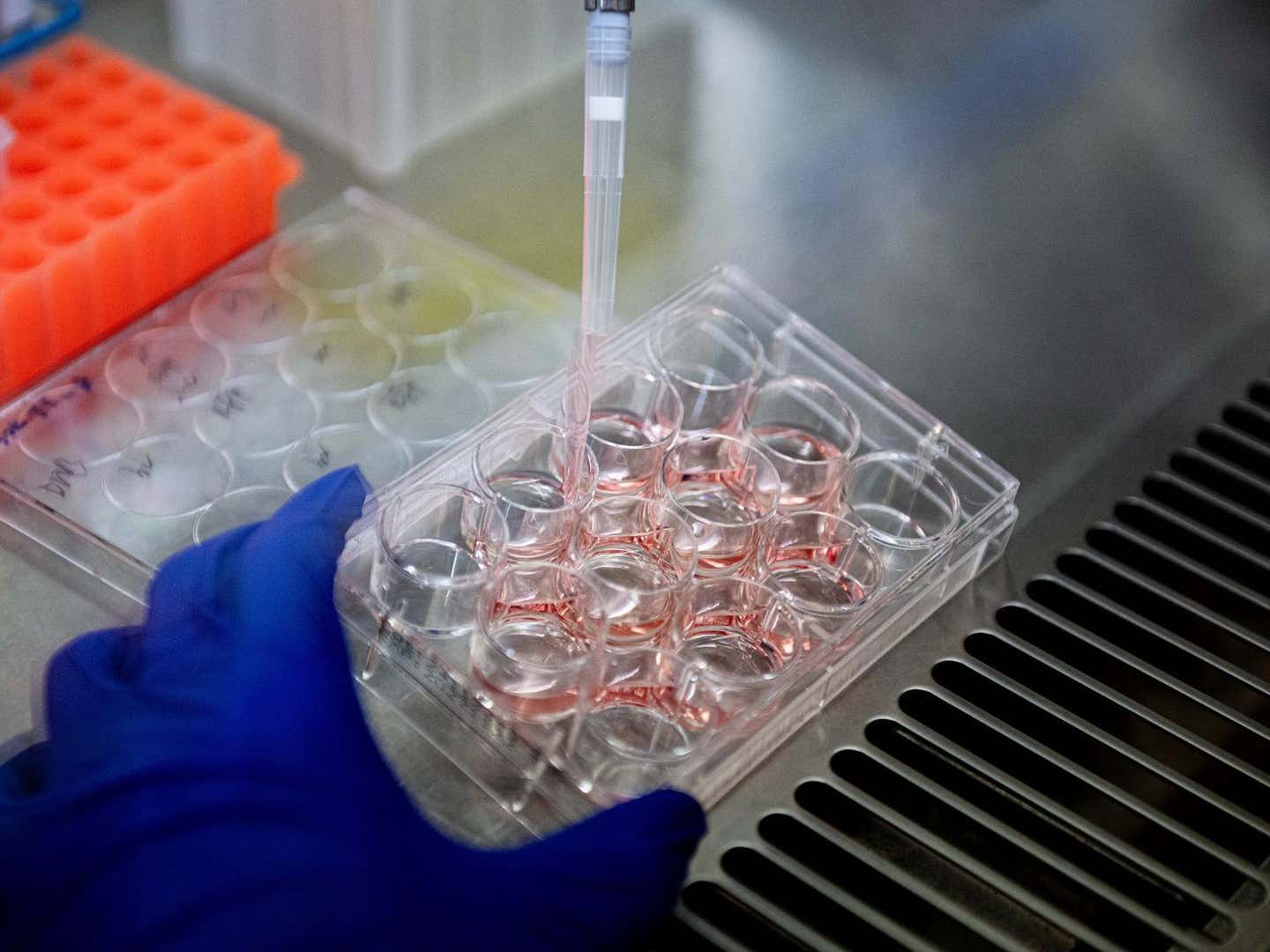Revolutionary antibody offers hope against opioid addiction
A groundbreaking discovery from Scripps Research has potential implications for the fight against the opioid crisis in the United States.

[Aug. 8, 2023: Staff Writer, The Brighter Side of News]
A groundbreaking discovery from Scripps Research has potential implications for the fight against the opioid crisis in the United States. (CREDIT: Creative Commons)
A groundbreaking discovery from Scripps Research has potential implications for the fight against the opioid crisis in the United States. Scientists at the renowned institution have developed an antibody known as a single-chain fragment variable (scFv) that has shown promise in reversing the life-threatening effects of carfentanil overdose during preclinical tests.
Carfentanil, a synthetic opioid and a variant of the more recognized fentanyl, carries an alarming potency - it's estimated to be 100 times stronger than fentanyl. This potency doesn't deter its illegal incorporation into drugs like heroin and cocaine, amplifying their euphoric impacts. Such adulteration has been responsible for numerous fatal overdoses.
The depth of the opioid crisis was further elucidated by Kim D. Janda, PhD, the study's senior author and the Ely R. Callaway, Jr. Professor of Chemistry at Scripps Research. “We expect this antibody to be a valuable new weapon for fighting the opioid crisis,” declared Dr. Janda.
To understand the crisis, it's pivotal to grasp the mechanics of opioid drugs. These substances, whether derived from opium poppy or synthesized, target neuronal receptors called mu-opioid receptors.
Related Stories:
The broad distribution of these receptors across the human nervous system explains the multi-dimensional impact of opioids, from pain relief and euphoria to potentially fatal respiratory depression.
In recent years, carfentanil, second only to fentanyl in prevalence, emerged as a significant concern. Previously legal as a large-animal tranquilizer, the FDA retracted its market presence in 2018, given its microgram-measured lethal potential and misuse risks. Its potency is so profound that the U.S. government has labeled it a potential chemical warfare agent.
A New Approach to Counteracting Overdoses
Treatment for fentanyl and carfentanil overdoses has conventionally involved the mu-opioid receptor-blocking drugs naloxone and naltrexone. These, however, often fall short, especially against synthetic opioids, even in substantial doses. Their protection is fleeting, leaving users vulnerable to the protracted presence of fentanyl or carfentanil in the system.
A crystal structure of the optimized antibody, C10-S66K. The binding pocket of C10‐S66K with fentanyl and carfentanil is displayed as a grey surface with fentanyl and carfentanil shown as green and yellow sticks, respectively. (CREDIT: Scripps Research)
With these challenges in mind, Dr. Janda's team sought to craft an anti-fentanyl antibody marked by high affinity to fentanyl derivatives, long-term protection, and quick bloodstream absorption via a straightforward intramuscular injection.
Using a carefully constructed molecule, the researchers vaccinated rodents, specifically engineered to produce human antibodies. This endeavor led to the identification of antibodies with extremely high affinity for carfentanil and its cousins. The most potent among these underwent further modifications for speedier bloodstream entry and prolonged presence.
Monoclonal antibodies present a versatile therapeutic opportunity that can be tailored to synthetic opioids and help prevent post-treatment renarcotization. (CREDIT: ACS Publications)
In rodent tests, the resultant optimized scFv, christened C10‐S66K, exhibited profound efficacy. When introduced 15 minutes post-significant carfentanil exposure, it successfully counteracted the opioid's neural impacts, most notably reversing respiratory depression. Its impact, even 40 minutes post-introduction, surpassed naloxone's peak effect.
Ian Wilson, PhD, another brilliant mind at Scripps Research, conducted an auxiliary study using X-ray crystallography, analyzing carfentanil- and fentanyl-bound C10‐S66K structures. These findings further reinforced the antibody's potential to bind to several fentanyl derivatives without hampering the action of other essential opioid molecules.
This monoclonal antibody displays high affinity to carfentanil, fentanyl, and other analogs and reversed carfentanil-induced respiratory depression. (CREDIT: ACS Publications)
Scripps Research has authorized Cessation Therapeutics to further refine and market C10-S66K. The FDA has also greenlit a full-length IgG version of this antibody, named CSX-1004, for upcoming clinical trials set to initiate this month.
If successful, this breakthrough antibody offers a beacon of hope against the dark backdrop of the opioid crisis, showcasing the invaluable role of persistent scientific inquiry and innovation in tackling some of society's most pressing challenges.
For more science and technology stories check out our New Discoveries section at The Brighter Side of News.
Note: Materials provided above by The Brighter Side of News. Content may be edited for style and length.
Like these kind of feel good stories? Get the Brighter Side of News' newsletter.



